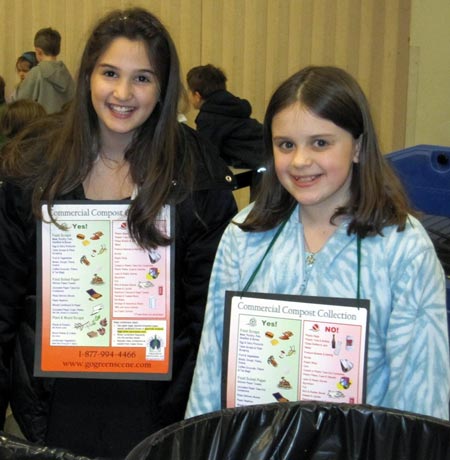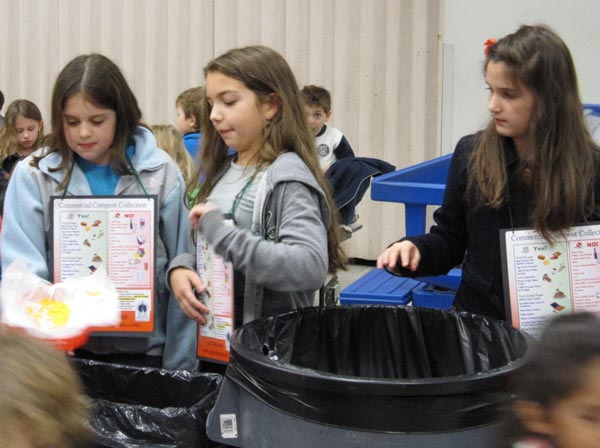Success story: Laura Ingalls Wilder Elementary School
School District: Lake Washington
School Location: Woodinville
Began participating in the Green Schools Program: November 2009
Level One of the Green Schools Program: Achieved in June 2010
Level Two of the Green Schools Program: Achieved in May 2011
Waste reduction and recycling
- Initially organized and energized by parent volunteers, the Wilder Elementary Green Schools team has grown to include students, teachers and staff as well as parents.
- The school increased its recycling rate from 43 percent to 53 percent by improving classroom recycling and starting to recycle cans, bottles and milk cartons in its lunchroom.
- With help from parent volunteers, sixth grade student leaders placed recycling stickers that list what can and can’t be recycled on classroom and lunchroom recycling containers.
- With support from Lake Washington School District, the school began sorting food scraps and food-soiled paper for collection by Cedar Grove Composting. As a result, Wilder decreased the size of its garbage container by 25 percent.
- Compared to the other 26 elementary schools in the Lake Washington School District, only four other elementary schools in the district generate less trash per student.
- A student green team helped educate the school about waste reduction, recycling and composting. Student monitors in the lunchroom assist students to properly sort their recyclable and compostable materials. The team became an official “King County Green Team” in spring 2010.
- Wilder’s student council hopped on board the green team concept, sponsoring two Waste-Free-Fridays in the lunchroom and using part of its budget to purchase biodegradable trash bags for the lunchroom food scrap containers.


- In order to save paper, the school opted not to receive student and staff certificates of recognition from the Green Schools Program.
- The school also recycles Capri Sun juice pouches. A sixth grade student volunteer packages them up and sends them to TerraCycle, a company that recycles juice pouches into useable products like tote bags. The school earns two cents per packet. The money generated will be used toward outdoor education at Wilder.
- While Wilder students and teachers have been key players in reducing waste, head custodian Chad Lux and instructional assistant/lunchroom lead Jan Kiehl have been instrumental in making it all happen. The success of the food scrap recycling program is due to their leadership.
- During 2010-11, a school-wide assembly from King County encouraged and taught students and staff about the importance of reducing, reusing and recycling.
Energy conservation
- Sixth grade student council members shared energy saving tips once each month during morning announcements.
- Stickers were placed on each electric outlet and computer monitor as reminders to turn off equipment and save energy.
Comments
“Thanks in part to the Green Schools program, the Wilder community has embraced the notion that we can reduce the amount of waste we add to landfills. We have started to take bold steps to affect positive change, and I am confident that Wilder will continue to strive for waste reduction in the coming years.” – Ryan Scott, sixth grade teacher
For more information about the school’s conservation achievements and participation in the Green Schools Program, contact:
Becky MacLearn, teacher
rmaclearn@lwsd.orgSteve Roetcisoender, principal
Sroetcisoender@lwsd.org


 Translate
Translate
